 ALI ALFONEH: Ali Alfoneh is currently a resident fellow for the American Enterprise Institute for Public Policy Research. He was a Research Fellow for the Copenhagen Middle East Research Programme from 2004-2006 and a lecturer at the University of Southern Denmark from 2003-2004. Alfoneh also worked as an Independent Researcher for the Institute for Political and International Studies, Tehran in 2003, was a Research Assistant at the Office of the President of the European Affairs Committee of the Danish Parliament from 2002-2003 and an elected member of the Herlev, Denmark City Council from 1994-99. Ali Alfoneh's research areas include civil-military relations in Iran with a special focus on the role of the Islamic Revolutionary Guards Corps in the Islamic Republic. Mr. Alfoneh has been a research fellow at the Institute for Strategy at the Royal Danish Defence College and has taught political economy at the Centre for Middle Eastern Studies at the University of Southern Denmark. He has published in various journals, newspapersand magazines, including the Middle Eastern Forum, Middle East Quarterly, National Review, RAND, the Washington Times, the New York Time, Ahram Online, the National Review. He holds an M.A. and B.A. from the University of Copenhagen and a B.A. from Roskilde University.
ALI ALFONEH: Ali Alfoneh is currently a resident fellow for the American Enterprise Institute for Public Policy Research. He was a Research Fellow for the Copenhagen Middle East Research Programme from 2004-2006 and a lecturer at the University of Southern Denmark from 2003-2004. Alfoneh also worked as an Independent Researcher for the Institute for Political and International Studies, Tehran in 2003, was a Research Assistant at the Office of the President of the European Affairs Committee of the Danish Parliament from 2002-2003 and an elected member of the Herlev, Denmark City Council from 1994-99. Ali Alfoneh's research areas include civil-military relations in Iran with a special focus on the role of the Islamic Revolutionary Guards Corps in the Islamic Republic. Mr. Alfoneh has been a research fellow at the Institute for Strategy at the Royal Danish Defence College and has taught political economy at the Centre for Middle Eastern Studies at the University of Southern Denmark. He has published in various journals, newspapersand magazines, including the Middle Eastern Forum, Middle East Quarterly, National Review, RAND, the Washington Times, the New York Time, Ahram Online, the National Review. He holds an M.A. and B.A. from the University of Copenhagen and a B.A. from Roskilde University.
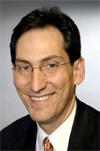 JON B. ALTERMAN: Jon B. Alterman is director and senior fellow of the Middle East Program at CSIS (Center for Strategic and International Studies). Prior to joining CSIS, he served as a member of the Policy Planning Staff at the U.S. Department of State and as a special assistant to the assistant secretary of state for Near Eastern affairs. He is a member of the Chief of Naval Operations Executive Panel and served as an expert adviser to the Iraq Study Group (also known as the Baker-Hamilton Commission). In addition to his policy work, he teaches Middle Eastern studies at the Johns Hopkins School of Advanced International Studies and the George Washington University. Before entering government, he was a scholar at the U.S. Institute of Peace and at the Washington Institute for Near East Policy. From 1993 to 1997, Alterman was an award-winning teacher at Harvard University, where he received his Ph.D. in history. He also worked as a legislative aide to Senator Daniel P. Moynihan (D-NY), responsible for foreign policy and defense. Alterman has lectured in more than 25 countries on subjects related to the Middle East and U.S. policy toward the region. He is the author or coauthor of four books on the Middle East and the editor of two more. In addition to his academic work, he is sought out as a consultant to business and government and is a frequent commentator in print, on radio, and on television. His opinion pieces have appeared in the Washington Post, Los Angeles Times, Wall Street Journal, Financial Times, Asharq al-Awsat, and other major publications. He is on the Board of Advisory Editors of the Middle East Journal, is a member of the Editorial Advisory Board of Arab Media and Society, and is a former international affairs fellow at the Council on Foreign Relations, where he is now a life member. He received his A.B. from Princeton University's Woodrow Wilson School of Public and International Affairs.
JON B. ALTERMAN: Jon B. Alterman is director and senior fellow of the Middle East Program at CSIS (Center for Strategic and International Studies). Prior to joining CSIS, he served as a member of the Policy Planning Staff at the U.S. Department of State and as a special assistant to the assistant secretary of state for Near Eastern affairs. He is a member of the Chief of Naval Operations Executive Panel and served as an expert adviser to the Iraq Study Group (also known as the Baker-Hamilton Commission). In addition to his policy work, he teaches Middle Eastern studies at the Johns Hopkins School of Advanced International Studies and the George Washington University. Before entering government, he was a scholar at the U.S. Institute of Peace and at the Washington Institute for Near East Policy. From 1993 to 1997, Alterman was an award-winning teacher at Harvard University, where he received his Ph.D. in history. He also worked as a legislative aide to Senator Daniel P. Moynihan (D-NY), responsible for foreign policy and defense. Alterman has lectured in more than 25 countries on subjects related to the Middle East and U.S. policy toward the region. He is the author or coauthor of four books on the Middle East and the editor of two more. In addition to his academic work, he is sought out as a consultant to business and government and is a frequent commentator in print, on radio, and on television. His opinion pieces have appeared in the Washington Post, Los Angeles Times, Wall Street Journal, Financial Times, Asharq al-Awsat, and other major publications. He is on the Board of Advisory Editors of the Middle East Journal, is a member of the Editorial Advisory Board of Arab Media and Society, and is a former international affairs fellow at the Council on Foreign Relations, where he is now a life member. He received his A.B. from Princeton University's Woodrow Wilson School of Public and International Affairs.
 DEBORAH AVANT: Deborah Avant is Professor of Political Science and Director of International Studies and the Center for Research on International and Global Studies at University of California, Irvine. Her research has focused on civil-military relations, military change, and the politics of controlling violence. Her current research focuses on how the US government’s use of private military and security forces has affected democratic processes in the United States, how private actors conceptualize and implement security in weak states and the way different state and non state actors govern on the global stage. Professor Avant is an adjunct fellow at the Pacific Council on International Policy. Her research has been funded by the Institute for Global Conflict and Cooperation, the John D. and Catherine T. MacArthur Foundation, the Olin Foundation, and the Smith Richardson Foundation, among others. She serves on the editorial boards of several journals including the American Political Science Review, Security Studies and International Studies Quarterly as well as on the steering committee of the Institute for Global Conflict and Cooperation. She has chaired the International Security Studies Section of the International Studies Association (ISA) and served on several boards including the executive board of ISA, the executive board of Women in International Security (WIIS) and the board of visitors for the Western Hemisphere Institute for Security Cooperation (WHINSEC).
DEBORAH AVANT: Deborah Avant is Professor of Political Science and Director of International Studies and the Center for Research on International and Global Studies at University of California, Irvine. Her research has focused on civil-military relations, military change, and the politics of controlling violence. Her current research focuses on how the US government’s use of private military and security forces has affected democratic processes in the United States, how private actors conceptualize and implement security in weak states and the way different state and non state actors govern on the global stage. Professor Avant is an adjunct fellow at the Pacific Council on International Policy. Her research has been funded by the Institute for Global Conflict and Cooperation, the John D. and Catherine T. MacArthur Foundation, the Olin Foundation, and the Smith Richardson Foundation, among others. She serves on the editorial boards of several journals including the American Political Science Review, Security Studies and International Studies Quarterly as well as on the steering committee of the Institute for Global Conflict and Cooperation. She has chaired the International Security Studies Section of the International Studies Association (ISA) and served on several boards including the executive board of ISA, the executive board of Women in International Security (WIIS) and the board of visitors for the Western Hemisphere Institute for Security Cooperation (WHINSEC).
 ASLI BALI: Professor Bâli is Acting Professor of Law at the UCLA School of Law. She teaches Public International Law, International Human Rights and a seminar on the Laws of War. She joins the UCLA faculty from the Yale Law School where she was the Irving S. Ribicoff Fellow in Law and Coordinator of the Middle East Legal Forum. A graduate of Williams College, Cambridge University, where she was a Herchel Smith Scholar, and the Yale Law School, she served as an editor of the Yale Law Journal and as an articles editor of the Yale Journal of Human Rights & Development. Bâli also hold a Ph.D. from the Department of Politics at Princeton University. After graduating from law school, Bâli practiced law with the law firm of Cleary, Gottlieb, Steen & Hamilton in New York and Paris, where, in addition to representing a variety of corporate clients, she engaged in extensive pro bono work relating to immigration, civil liberties, and international human rights. Bâli’s research interests focus on public international law generally, including the intersection of international law and international relations, as well as issues of non-proliferation, human rights and humanitarian law. She also has a strong interest in the comparative law of the Middle East. Recent work includes The Legality-Legitimacy Debate in the Context of Nonproliferation (forthcoming, 2010, Oxford University Press); American Overreach: Strategic Interests and Millennial Ambitions in the Middle East, published in Geopolitics Vol. 15, Issue 2 (2010); and From Subjects to Citizens? The Shifting Paradigm of Electoral Authoritarianism in the Middle East, published in Middle East Law and Governance (2009).
ASLI BALI: Professor Bâli is Acting Professor of Law at the UCLA School of Law. She teaches Public International Law, International Human Rights and a seminar on the Laws of War. She joins the UCLA faculty from the Yale Law School where she was the Irving S. Ribicoff Fellow in Law and Coordinator of the Middle East Legal Forum. A graduate of Williams College, Cambridge University, where she was a Herchel Smith Scholar, and the Yale Law School, she served as an editor of the Yale Law Journal and as an articles editor of the Yale Journal of Human Rights & Development. Bâli also hold a Ph.D. from the Department of Politics at Princeton University. After graduating from law school, Bâli practiced law with the law firm of Cleary, Gottlieb, Steen & Hamilton in New York and Paris, where, in addition to representing a variety of corporate clients, she engaged in extensive pro bono work relating to immigration, civil liberties, and international human rights. Bâli’s research interests focus on public international law generally, including the intersection of international law and international relations, as well as issues of non-proliferation, human rights and humanitarian law. She also has a strong interest in the comparative law of the Middle East. Recent work includes The Legality-Legitimacy Debate in the Context of Nonproliferation (forthcoming, 2010, Oxford University Press); American Overreach: Strategic Interests and Millennial Ambitions in the Middle East, published in Geopolitics Vol. 15, Issue 2 (2010); and From Subjects to Citizens? The Shifting Paradigm of Electoral Authoritarianism in the Middle East, published in Middle East Law and Governance (2009).
 GEN. WESLEY K. CLARK: Wesley Clark has been a Senior Fellow at the Burkle Center since 2006. As Senior Fellow, Clark guest lectures, helps develop the annual Burkle Center conference, writes articles, and supports the Center's initiatives. Born in 1944 in Chicago, Illinois and raised in Little Rock, Arkansas, Wesley Clark distinguished himself early as an athlete and a scholar, leading his high school swimming team to a state championship and graduating first in his class from West Point. In 1966, he was awarded a Rhodes Scholarship to Oxford University, where he earned a Masters Degree in Politics, Philosophy and Economics. During thirty-four years of service in the United States Army Wesley K. Clark rose to the rank of four-star general as NATO's Supreme Allied Commander, Europe. After his retirement in 2000, he became an investment banker, author, commentator, and businessman. In September 2003 he answered the call to stand as a Democratic candidate for President of the United States, where his campaign won the state of Oklahoma and launched him to national prominence before he returned to the private sector in February 2004. Most recently Gen. Clark published a book, A Time to Lead: For Duty, Honor and Country (Palgrave Macmillan, September 4, 2007), about his life experiences in the army, politics and international peacekeeping. For more information about Wesley Clark, visit his website www.securingamerica.com.
GEN. WESLEY K. CLARK: Wesley Clark has been a Senior Fellow at the Burkle Center since 2006. As Senior Fellow, Clark guest lectures, helps develop the annual Burkle Center conference, writes articles, and supports the Center's initiatives. Born in 1944 in Chicago, Illinois and raised in Little Rock, Arkansas, Wesley Clark distinguished himself early as an athlete and a scholar, leading his high school swimming team to a state championship and graduating first in his class from West Point. In 1966, he was awarded a Rhodes Scholarship to Oxford University, where he earned a Masters Degree in Politics, Philosophy and Economics. During thirty-four years of service in the United States Army Wesley K. Clark rose to the rank of four-star general as NATO's Supreme Allied Commander, Europe. After his retirement in 2000, he became an investment banker, author, commentator, and businessman. In September 2003 he answered the call to stand as a Democratic candidate for President of the United States, where his campaign won the state of Oklahoma and launched him to national prominence before he returned to the private sector in February 2004. Most recently Gen. Clark published a book, A Time to Lead: For Duty, Honor and Country (Palgrave Macmillan, September 4, 2007), about his life experiences in the army, politics and international peacekeeping. For more information about Wesley Clark, visit his website www.securingamerica.com.
 REUEL MARC GERECHT: Reuel Marc Gerecht is a senior fellow with the Foundation for Defense of Democracies. He focuses on Islamic militancy, terrorism, and intelligence, spending much of his time looking at Iran, Egypt, Iraq, and Afghanistan. He was previously a resident fellow at the American Enterprise Institute and the director of the Middle East Initiative at the Project for the New American Century. Earlier, he served as a Middle Eastern specialist at the CIA's Directorate of Operations. He is a contributing editor at the Weekly Standard and has been a correspondent for the Atlantic Monthly. He contributes regularly to the New York Times, the Wall Street Journal, the New Republic, and many other publications.
REUEL MARC GERECHT: Reuel Marc Gerecht is a senior fellow with the Foundation for Defense of Democracies. He focuses on Islamic militancy, terrorism, and intelligence, spending much of his time looking at Iran, Egypt, Iraq, and Afghanistan. He was previously a resident fellow at the American Enterprise Institute and the director of the Middle East Initiative at the Project for the New American Century. Earlier, he served as a Middle Eastern specialist at the CIA's Directorate of Operations. He is a contributing editor at the Weekly Standard and has been a correspondent for the Atlantic Monthly. He contributes regularly to the New York Times, the Wall Street Journal, the New Republic, and many other publications.
 BRUCE JENTLESON: Bruce Jentleson is Professor of Public Policy and Political Science at Duke University, where he served from 2000-2005 as Director, Terry Sanford Institute of Public Policy. His policy experience includes having served as a Senior Advisor to the U.S. State Department Policy Planning Director, 2009-2011. During the 2008 presidential campaign, he was a member of the Phoenix Initiative and a co-author of Strategic Leadership: Framework for a 21st Century National Security Strategy. He was also on the Preventive Diplomacy Expert Advisory Group to the National Commission on Genocide Prevention and the Presidential Task Force on Preventing Regional Instability from Iran’s Nuclear Progress of the Washington Institute for Near East Policy. In 1999-2000, he served as a senior foreign policy advisor to Vice President Al Gore and his presidential campaign. In 1993-94, he was on the State Department Policy Planning Staff as Special Assistant to the Director, with a broad range of policy responsibilities, including serving on the U.S. delegation to the Middle East Multilateral Arms Control and Regional Security Talks. He also served as a foreign affairs aide for Senator Dave Durenberger (1978-79) and Senator Al Gore (1987-88). In 2009, Jentleson was the Program Co-Chair for the Annual Meeting of the American Political Science Association. He currently serves on the Board of Directors of the Close Up Foundation and the Editorial Boards of Political Science Quarterly and CIAO. Prior to coming to Duke, Jentleson was Professor at the University of California-Davis and Director of the UC Davis Washington Center. He has held research appointments at the U.S. Institute of Peace, the Brookings Institution, Oxford University, the International Institute for Strategic Studies (London), and as a Fulbright Senior Research Scholar in Spain. He has served as a consultant to the Carnegie Commission for Preventing Deadly Conflict, the National Academy of Sciences, the American Assembly, the Atlantic Council, the Washington Institute for Near East Policy, and the U.S. Institute of Peace. He has lectured internationally in over a dozen countries. He is often quoted in the press and has appeared on such shows as ABC Nightline, the Lehrer News Hour, and BBC. He holds a Ph.D. from Cornell University, and was recipient of the American Political Science Association’s Harold D. Lasswell Award for his doctoral dissertation; a Master's from the London School of Economics and Political Science; and a Bachelor’s degree also from Cornell.
BRUCE JENTLESON: Bruce Jentleson is Professor of Public Policy and Political Science at Duke University, where he served from 2000-2005 as Director, Terry Sanford Institute of Public Policy. His policy experience includes having served as a Senior Advisor to the U.S. State Department Policy Planning Director, 2009-2011. During the 2008 presidential campaign, he was a member of the Phoenix Initiative and a co-author of Strategic Leadership: Framework for a 21st Century National Security Strategy. He was also on the Preventive Diplomacy Expert Advisory Group to the National Commission on Genocide Prevention and the Presidential Task Force on Preventing Regional Instability from Iran’s Nuclear Progress of the Washington Institute for Near East Policy. In 1999-2000, he served as a senior foreign policy advisor to Vice President Al Gore and his presidential campaign. In 1993-94, he was on the State Department Policy Planning Staff as Special Assistant to the Director, with a broad range of policy responsibilities, including serving on the U.S. delegation to the Middle East Multilateral Arms Control and Regional Security Talks. He also served as a foreign affairs aide for Senator Dave Durenberger (1978-79) and Senator Al Gore (1987-88). In 2009, Jentleson was the Program Co-Chair for the Annual Meeting of the American Political Science Association. He currently serves on the Board of Directors of the Close Up Foundation and the Editorial Boards of Political Science Quarterly and CIAO. Prior to coming to Duke, Jentleson was Professor at the University of California-Davis and Director of the UC Davis Washington Center. He has held research appointments at the U.S. Institute of Peace, the Brookings Institution, Oxford University, the International Institute for Strategic Studies (London), and as a Fulbright Senior Research Scholar in Spain. He has served as a consultant to the Carnegie Commission for Preventing Deadly Conflict, the National Academy of Sciences, the American Assembly, the Atlantic Council, the Washington Institute for Near East Policy, and the U.S. Institute of Peace. He has lectured internationally in over a dozen countries. He is often quoted in the press and has appeared on such shows as ABC Nightline, the Lehrer News Hour, and BBC. He holds a Ph.D. from Cornell University, and was recipient of the American Political Science Association’s Harold D. Lasswell Award for his doctoral dissertation; a Master's from the London School of Economics and Political Science; and a Bachelor’s degree also from Cornell.
 DALIA DASSA KAYE: Dalia Dassa Kaye is a senior political scientist at the RAND Corporation in Santa Monica, California and is a faculty member of RAND’s Pardee Graduate School of Public Policy. Her work at RAND has focused on Middle East security challenges and U.S. policy. She is the author of numerous books, monographs, articles and opinion pieces on the Middle East. From 2008 to 2009, she served as associate director of the RAND Center for Middle East Public Policy. Before joining RAND, Dalia served as a Council on Foreign Relations International Affairs Fellow at the Dutch Foreign Ministry. While living in The Netherlands, she taught at the University of Amsterdam and was a visiting scholar at the Netherlands Institute of International Relations (Clingendael). Dalia served on the faculty at The George Washington University as an assistant professor of political science and international affairs from 1998-2003. She is the recipient of many awards and fellowships, including a Brookings Institution research fellowship, a junior scholar award from the Smith Richardson Foundation, and The John W. Gardner Fellowship for Public Service. Dalia is a member of the Council on Foreign Relations. She holds a Ph.D. in political science from the University of California, Berkeley.
DALIA DASSA KAYE: Dalia Dassa Kaye is a senior political scientist at the RAND Corporation in Santa Monica, California and is a faculty member of RAND’s Pardee Graduate School of Public Policy. Her work at RAND has focused on Middle East security challenges and U.S. policy. She is the author of numerous books, monographs, articles and opinion pieces on the Middle East. From 2008 to 2009, she served as associate director of the RAND Center for Middle East Public Policy. Before joining RAND, Dalia served as a Council on Foreign Relations International Affairs Fellow at the Dutch Foreign Ministry. While living in The Netherlands, she taught at the University of Amsterdam and was a visiting scholar at the Netherlands Institute of International Relations (Clingendael). Dalia served on the faculty at The George Washington University as an assistant professor of political science and international affairs from 1998-2003. She is the recipient of many awards and fellowships, including a Brookings Institution research fellowship, a junior scholar award from the Smith Richardson Foundation, and The John W. Gardner Fellowship for Public Service. Dalia is a member of the Council on Foreign Relations. She holds a Ph.D. in political science from the University of California, Berkeley.
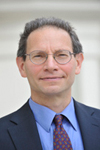 CHARLES KUPCHAN: Charles Kupchan is Professor of International Affairs in the School of Foreign Service and Government Department at Georgetown University and Whitney Shepardson Senior Fellow at the Council on Foreign Relations. Kupchan was Director for European Affairs on the National Security Council during the first Clinton administration. Before joining the NSC, he worked in the U.S. Department of State on the Policy Planning Staff. Prior to government service, he was an Assistant Professor of Politics at Princeton University. His areas of expertise include: transatlantic relations (NATO, European Union, the Balkans, Russia); U.S. national security and grand strategy; rapprochement; international order and global change. Kupchan received a B.A. from Harvard University and M.Phil. and D.Phil. degrees from Oxford University. He has served as a visiting scholar at Harvard University’s Center for International Affairs, Columbia University’s Institute for War and Peace Studies, the International Institute for Strategic Studies in London, the Centre d’Etude et de Recherches Internationales in Paris, and the Institute for International Policy Studies in Tokyo. During 2006-2007, he held the Henry A. Kissinger Chair at the Library of Congress and was a Fellow at the Woodrow Wilson International Center for Scholars.
CHARLES KUPCHAN: Charles Kupchan is Professor of International Affairs in the School of Foreign Service and Government Department at Georgetown University and Whitney Shepardson Senior Fellow at the Council on Foreign Relations. Kupchan was Director for European Affairs on the National Security Council during the first Clinton administration. Before joining the NSC, he worked in the U.S. Department of State on the Policy Planning Staff. Prior to government service, he was an Assistant Professor of Politics at Princeton University. His areas of expertise include: transatlantic relations (NATO, European Union, the Balkans, Russia); U.S. national security and grand strategy; rapprochement; international order and global change. Kupchan received a B.A. from Harvard University and M.Phil. and D.Phil. degrees from Oxford University. He has served as a visiting scholar at Harvard University’s Center for International Affairs, Columbia University’s Institute for War and Peace Studies, the International Institute for Strategic Studies in London, the Centre d’Etude et de Recherches Internationales in Paris, and the Institute for International Policy Studies in Tokyo. During 2006-2007, he held the Henry A. Kissinger Chair at the Library of Congress and was a Fellow at the Woodrow Wilson International Center for Scholars.
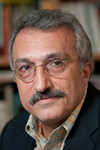 ABBAS MILANI: Abbas Milani is the Hamid and Christina Moghadam Director of Iranian Studies at Stanford University and a consulting professor in the department of political science. In addition, Dr. Milani is a research fellow and co-director of the Iran Democracy Project at the Hoover Institution. His expertise is U.S./Iran relations, Iranian cultural, political, and security issues. Milani was a professor of history and political science and chair of the department at Notre Dame de Namur University and a research fellow at the Institute of International Studies at the University of California at Berkeley. Milani was an assistant professor in the faculty of law and political science at Tehran University and a member of the board of directors of Tehran University's Center for International Studies from 1979 to 1987. He was a research fellow at the Iranian Center for Social Research from 1977 to 1978 and an assistant professor at the National University of Iran from 1975 to 1977. Milani's articles have been published in journals, magazines, and newspapers including the Boston Review, Brown Journal of World Affairs, Herald Tribune, Journal of Democracy, New York Times, Washington Post, Washington Quarterly, Wall Street Journal, Encyclopedia Iranica, Hoover Digest, Iranshenasi, The Middle East Journal, New York Review of Books, San Francisco Chronicle, and the Times Literary Supplement. He has been interviewed for radio and television, appearing on BBC, CNN, NPR, KQED, Radio France, Radio Farda, Radio Free Europe, Radio and Television of Iran, and Voice of America. Milani has also translated numerous books and articles into Persian and English. He served as a member of the board of directors for ISG (Iranian Studies Group at MIT) for five years, and is currently a member of the American Association of Political Science, and the Association of Iranian Studies. Milani received his BA in political science and economics from the University of California at Berkeley in 1970 and his PhD in political science from the University of Hawaii in 1974.
ABBAS MILANI: Abbas Milani is the Hamid and Christina Moghadam Director of Iranian Studies at Stanford University and a consulting professor in the department of political science. In addition, Dr. Milani is a research fellow and co-director of the Iran Democracy Project at the Hoover Institution. His expertise is U.S./Iran relations, Iranian cultural, political, and security issues. Milani was a professor of history and political science and chair of the department at Notre Dame de Namur University and a research fellow at the Institute of International Studies at the University of California at Berkeley. Milani was an assistant professor in the faculty of law and political science at Tehran University and a member of the board of directors of Tehran University's Center for International Studies from 1979 to 1987. He was a research fellow at the Iranian Center for Social Research from 1977 to 1978 and an assistant professor at the National University of Iran from 1975 to 1977. Milani's articles have been published in journals, magazines, and newspapers including the Boston Review, Brown Journal of World Affairs, Herald Tribune, Journal of Democracy, New York Times, Washington Post, Washington Quarterly, Wall Street Journal, Encyclopedia Iranica, Hoover Digest, Iranshenasi, The Middle East Journal, New York Review of Books, San Francisco Chronicle, and the Times Literary Supplement. He has been interviewed for radio and television, appearing on BBC, CNN, NPR, KQED, Radio France, Radio Farda, Radio Free Europe, Radio and Television of Iran, and Voice of America. Milani has also translated numerous books and articles into Persian and English. He served as a member of the board of directors for ISG (Iranian Studies Group at MIT) for five years, and is currently a member of the American Association of Political Science, and the Association of Iranian Studies. Milani received his BA in political science and economics from the University of California at Berkeley in 1970 and his PhD in political science from the University of Hawaii in 1974.
 TRITA PARSI: Trita Parsi is the 2010 recipient of the Grawemeyer Award for Ideas Improving World Order. He is the founder and president of the National Iranian American Council and an expert on US-Iranian relations and the geopolitics of the Middle East. He is the author of Treacherous Alliance: The Secret Dealings of Iran, Israel and the United States (Yale University Press 2007), for which he conducted more than 130 interviews with senior Israeli, Iranian and American decision-makers. Treacherous Alliance is the silver medal winner of the 2008 Arthur Ross Book Award from the Council on Foreign Relations. Parsi was born in Iran but moved with his family at the age of four to Sweden in order to escape political repression in Iran. His father was an outspoken academic and non-Muslim who was jailed by the Shah and then by the Ayatollah. He moved to the United States as an adult and studied foreign policy at Johns Hopkins’ School for Advanced International Studies where he received his Ph.D. He founded NIAC to provide a non-partisan, non-profit organization through which Iranian-Americans could participate in American civic life. Parsi has followed Middle East politics through work in the field and extensive experience on Capitol Hill and at the United Nations. He is frequently consulted by Western and Asian governments on foreign policy matters and worked for the Swedish Permanent Mission to the UN, where he served in the Security Council and in the General Assembly's Third Committee. Parsi studied for his Doctoral thesis on Israeli-Iranian relations under Professor Francis Fukuyama at Johns Hopkins University School of Advanced International Studies. In addition to his PhD, he holds a Master's Degree in International Relations from Uppsala University and a Master's Degree in Economics from the Stockholm School of Economics. He has served as an adjunct professor of International Relations at Johns Hopkins University SAIS and a Public Policy Scholar at the Woodrow Wilson Center for International Scholars. He is currently an adjunct scholar at the Middle East Institute. He is fluent in Persian/Farsi, English, and Swedish. Parsi's articles on Middle East affairs have been published in the Wall Street Journal, Financial Times, Jane's Intelligence Review, the Nation, The American Conservative, the Jerusalem Post, The Forward, and others. He is a frequent guest on CNN, PBS’s Newshour with Jim Lehrer, NPR, the BBC, and Al Jazeera.
TRITA PARSI: Trita Parsi is the 2010 recipient of the Grawemeyer Award for Ideas Improving World Order. He is the founder and president of the National Iranian American Council and an expert on US-Iranian relations and the geopolitics of the Middle East. He is the author of Treacherous Alliance: The Secret Dealings of Iran, Israel and the United States (Yale University Press 2007), for which he conducted more than 130 interviews with senior Israeli, Iranian and American decision-makers. Treacherous Alliance is the silver medal winner of the 2008 Arthur Ross Book Award from the Council on Foreign Relations. Parsi was born in Iran but moved with his family at the age of four to Sweden in order to escape political repression in Iran. His father was an outspoken academic and non-Muslim who was jailed by the Shah and then by the Ayatollah. He moved to the United States as an adult and studied foreign policy at Johns Hopkins’ School for Advanced International Studies where he received his Ph.D. He founded NIAC to provide a non-partisan, non-profit organization through which Iranian-Americans could participate in American civic life. Parsi has followed Middle East politics through work in the field and extensive experience on Capitol Hill and at the United Nations. He is frequently consulted by Western and Asian governments on foreign policy matters and worked for the Swedish Permanent Mission to the UN, where he served in the Security Council and in the General Assembly's Third Committee. Parsi studied for his Doctoral thesis on Israeli-Iranian relations under Professor Francis Fukuyama at Johns Hopkins University School of Advanced International Studies. In addition to his PhD, he holds a Master's Degree in International Relations from Uppsala University and a Master's Degree in Economics from the Stockholm School of Economics. He has served as an adjunct professor of International Relations at Johns Hopkins University SAIS and a Public Policy Scholar at the Woodrow Wilson Center for International Scholars. He is currently an adjunct scholar at the Middle East Institute. He is fluent in Persian/Farsi, English, and Swedish. Parsi's articles on Middle East affairs have been published in the Wall Street Journal, Financial Times, Jane's Intelligence Review, the Nation, The American Conservative, the Jerusalem Post, The Forward, and others. He is a frequent guest on CNN, PBS’s Newshour with Jim Lehrer, NPR, the BBC, and Al Jazeera.
 PAUL PILLAR: Professor Pillar is the Director of Graduate Studies and a core faculty member of the Security Studies Program at the Center for peace and Security Studies at Georgetown University. Pillar retired in 2005 from a 28-year career in the U.S. intelligence community, in which his last position was National Intelligence Officer for the Near East and South Asia. Earlier he served in a variety of analytical and managerial positions, including as chief of analytic units at the CIA covering portions of the Near East, the Persian Gulf, and South Asia. Professor Pillar also served in the National Intelligence Council as one of the original members of its Analytic Group. He has been Executive Assistant to CIA's Deputy Director for Intelligence and Executive Assistant to Director of Central Intelligence William Webster. He has also headed the Assessments and Information Group of the DCI Counterterrorist Center, and from 1997 to 1999 was deputy chief of the center. He was a Federal Executive Fellow at the Brookings Institution in 1999-2000. Professor Pillar is a retired officer in the U.S. Army Reserve and served on active duty in 1971-1973, including a tour of duty in Vietnam. Pillar holds a M. A. and Ph.D. in Politics from Princeton University, a B. Phil. in Politics from Oxford University and an A.B. summa cum laude in Government from Dartmouth College.
PAUL PILLAR: Professor Pillar is the Director of Graduate Studies and a core faculty member of the Security Studies Program at the Center for peace and Security Studies at Georgetown University. Pillar retired in 2005 from a 28-year career in the U.S. intelligence community, in which his last position was National Intelligence Officer for the Near East and South Asia. Earlier he served in a variety of analytical and managerial positions, including as chief of analytic units at the CIA covering portions of the Near East, the Persian Gulf, and South Asia. Professor Pillar also served in the National Intelligence Council as one of the original members of its Analytic Group. He has been Executive Assistant to CIA's Deputy Director for Intelligence and Executive Assistant to Director of Central Intelligence William Webster. He has also headed the Assessments and Information Group of the DCI Counterterrorist Center, and from 1997 to 1999 was deputy chief of the center. He was a Federal Executive Fellow at the Brookings Institution in 1999-2000. Professor Pillar is a retired officer in the U.S. Army Reserve and served on active duty in 1971-1973, including a tour of duty in Vietnam. Pillar holds a M. A. and Ph.D. in Politics from Princeton University, a B. Phil. in Politics from Oxford University and an A.B. summa cum laude in Government from Dartmouth College.
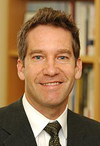 KAL RAUSTIALA: Kal Raustiala teaches courses in international law and international relations. He holds a joint appointment between the UCLA Law School and the UCLA International Institute, where he teaches in the Program on Global Studies, a multidisciplinary undergraduate program on globalization. In December 2006, he was appointed director of the UCLA Ronald W. Burkle Center for International Relations. The Burkle Center is UCLA's primary academic unit that fosters interdisciplinary research and policy-oriented teaching on the role of the United States in global cooperation and conflict, and military, political, social and economic affairs. In addition to UCLA, Professor Raustiala has been a visiting professor at Harvard Law School, Columbia Law School, the Princeton Politics Department, and the University of Chicago Law School. He was a fellow in the Foreign Policy Studies Program at The Brookings Institution, Washington, D.C., a Peccei Scholar at the International Institute for Applied Systems in Vienna, Austria, and a fellow in the Program on Law and Public Affairs at the Woodrow Wilson School at Princeton. A member of the American Society of International Law and the Council on Foreign Relations, he is on the editorial boards of International Organization and the American Journal of International Law and has served as a consultant on legal matters to numerous international organizations.
KAL RAUSTIALA: Kal Raustiala teaches courses in international law and international relations. He holds a joint appointment between the UCLA Law School and the UCLA International Institute, where he teaches in the Program on Global Studies, a multidisciplinary undergraduate program on globalization. In December 2006, he was appointed director of the UCLA Ronald W. Burkle Center for International Relations. The Burkle Center is UCLA's primary academic unit that fosters interdisciplinary research and policy-oriented teaching on the role of the United States in global cooperation and conflict, and military, political, social and economic affairs. In addition to UCLA, Professor Raustiala has been a visiting professor at Harvard Law School, Columbia Law School, the Princeton Politics Department, and the University of Chicago Law School. He was a fellow in the Foreign Policy Studies Program at The Brookings Institution, Washington, D.C., a Peccei Scholar at the International Institute for Applied Systems in Vienna, Austria, and a fellow in the Program on Law and Public Affairs at the Woodrow Wilson School at Princeton. A member of the American Society of International Law and the Council on Foreign Relations, he is on the editorial boards of International Organization and the American Journal of International Law and has served as a consultant on legal matters to numerous international organizations.
 MAHSA ROUHI: Mahsa Rouhi is a Nuclear Security Fellow at Belfer Center, Harvard University. She is a Ph.D. candidate in international relations at University of Cambridge, UK, and a research associate at the Center for International Studies, Massachusetts Institute of Technology. She received her B.A. in economics from Shahid Beheshty University in Tehran and a master's degree in political theory from the University of Sheffield, UK. During her nuclear security fellowship, she will continue her dissertation research and writing on Iran's foreign and security policymaking, with a special focus on Iran's nuclear-related policymaking.
MAHSA ROUHI: Mahsa Rouhi is a Nuclear Security Fellow at Belfer Center, Harvard University. She is a Ph.D. candidate in international relations at University of Cambridge, UK, and a research associate at the Center for International Studies, Massachusetts Institute of Technology. She received her B.A. in economics from Shahid Beheshty University in Tehran and a master's degree in political theory from the University of Sheffield, UK. During her nuclear security fellowship, she will continue her dissertation research and writing on Iran's foreign and security policymaking, with a special focus on Iran's nuclear-related policymaking.
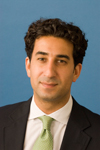 KARIM SADJADPOUR: Karim Sadjadpour is an associate at the Carnegie Endowment. He joined Carnegie after four years as the chief Iran analyst at the International Crisis Group based in Washington and Tehran, where he conducted dozens of interviews with senior Iranian officials, and hundreds with Iranian intellectuals, clerics, dissidents, paramilitaries, businessmen, students, activists, and youth, among others. He is a regular contributor to BBC TV and radio, CNN, National Public Radio, PBS NewsHour, and Al-Jazeera, and has appeared on the Today Show, Charlie Rose, Fox News Sunday, and the Colbert Report, among others. He contributes regularly to publications such as the Economist, Washington Post, New York Times, International Herald Tribune, and Foreign Policy. Frequently called upon to brief U.S., EU, and Asian officials about Middle Eastern affairs, he regularly testifies before Congress, has lectured at Harvard, Princeton, and Stanford Universities, and has been the recipient of numerous academic awards, including a Fulbright scholarship. In 2007 Sadjadpour was named a Young Global Leader by the World Economic Forum in Davos. He has lived in Latin America, Europe, and the Middle East and speaks English, Italian, Persian and Spanish. He received his B.A. from the University of Michigan and his M.A. from Johns Hopkins School of Advanced International Studies.
KARIM SADJADPOUR: Karim Sadjadpour is an associate at the Carnegie Endowment. He joined Carnegie after four years as the chief Iran analyst at the International Crisis Group based in Washington and Tehran, where he conducted dozens of interviews with senior Iranian officials, and hundreds with Iranian intellectuals, clerics, dissidents, paramilitaries, businessmen, students, activists, and youth, among others. He is a regular contributor to BBC TV and radio, CNN, National Public Radio, PBS NewsHour, and Al-Jazeera, and has appeared on the Today Show, Charlie Rose, Fox News Sunday, and the Colbert Report, among others. He contributes regularly to publications such as the Economist, Washington Post, New York Times, International Herald Tribune, and Foreign Policy. Frequently called upon to brief U.S., EU, and Asian officials about Middle Eastern affairs, he regularly testifies before Congress, has lectured at Harvard, Princeton, and Stanford Universities, and has been the recipient of numerous academic awards, including a Fulbright scholarship. In 2007 Sadjadpour was named a Young Global Leader by the World Economic Forum in Davos. He has lived in Latin America, Europe, and the Middle East and speaks English, Italian, Persian and Spanish. He received his B.A. from the University of Michigan and his M.A. from Johns Hopkins School of Advanced International Studies.
 MIKE SHUSTER: Mike Shuster is an award-winning diplomatic correspondent and roving foreign correspondent for NPR News. He is based at NPR West, in Culver City, CA. When not traveling outside the U.S., Shuster covers issues of nuclear non-proliferation and weapons of mass destruction, terrorism, and the Pacific Rim. In recent years, Shuster has helped shape NPR’s extensive coverage of the Middle East as one of the leading reporters to cover this region, traveling in the spring of 2007 to Iraq to cover the increased deployment of American forces in Baghdad. He has traveled frequently to Iran, seven times since 2004, to report on Iran's nuclear program and political changes there. He has also reported frequently from Israel, covering the 2006 war with Hezbollah, the pullout from Gaza in 2005 and the second intifada that erupted in 2000. His 2007 week-long series "The Partisans of Ali" explored the history of Shi'ite faith and politics, providing a rare, comprehensive look at the complexities of the Islamic religion and its impact on the Western world. Shuster has won numerous awards for his reporting. He was part of the NPR News team to be recognized with a Peabody Award for coverage of September 11th and its aftermath. He was also part of the NPR News teams to receive Alfred I. duPont-Columbia University Awards for coverage of the Iraq War (2007 and 2004); September 11th and the war in Afghanistan (2003); and the Gulf War (1992). In 2003, Shuster was honored for his series "The Middle East: A Century of Conflict" with an Overseas Press Club Lowell Thomas Award and First in Documentary Reporting from the National Headliner Awards. He also received an honorable mention from the Overseas Press Club in 1999, and the SAJA Journalism Award in 1998. Through his reporting for NPR, Shuster has also taken listeners to India and Pakistan, the Central Asian nations of Uzbekistan, Turkmenistan, and Tajikistan, and the Congo. He was NPR's senior Moscow correspondent in the early 1990s, when he covered the collapse of the Soviet Union and a wide range of political, economic, and social issues in Russia and the other independent states of the former Soviet Union. Before moving to London, Shuster worked as a reporter and bureau chief at NPR New York, and an editor of Weekend All Things Considered. He joined NPR in 1980 as a freelance reporter covering business and the economy. Prior to coming to NPR, Shuster was a United Nations correspondent for Pacifica News Service, during which he covered the 1980 election of Robert Mugabe in Zimbabwe. He traveled throughout Africa as a freelance foreign affairs reporter in 1970 and again in 1976; on this latter trip, Shuster spent five months covering Angolan civil war and its aftermath.
MIKE SHUSTER: Mike Shuster is an award-winning diplomatic correspondent and roving foreign correspondent for NPR News. He is based at NPR West, in Culver City, CA. When not traveling outside the U.S., Shuster covers issues of nuclear non-proliferation and weapons of mass destruction, terrorism, and the Pacific Rim. In recent years, Shuster has helped shape NPR’s extensive coverage of the Middle East as one of the leading reporters to cover this region, traveling in the spring of 2007 to Iraq to cover the increased deployment of American forces in Baghdad. He has traveled frequently to Iran, seven times since 2004, to report on Iran's nuclear program and political changes there. He has also reported frequently from Israel, covering the 2006 war with Hezbollah, the pullout from Gaza in 2005 and the second intifada that erupted in 2000. His 2007 week-long series "The Partisans of Ali" explored the history of Shi'ite faith and politics, providing a rare, comprehensive look at the complexities of the Islamic religion and its impact on the Western world. Shuster has won numerous awards for his reporting. He was part of the NPR News team to be recognized with a Peabody Award for coverage of September 11th and its aftermath. He was also part of the NPR News teams to receive Alfred I. duPont-Columbia University Awards for coverage of the Iraq War (2007 and 2004); September 11th and the war in Afghanistan (2003); and the Gulf War (1992). In 2003, Shuster was honored for his series "The Middle East: A Century of Conflict" with an Overseas Press Club Lowell Thomas Award and First in Documentary Reporting from the National Headliner Awards. He also received an honorable mention from the Overseas Press Club in 1999, and the SAJA Journalism Award in 1998. Through his reporting for NPR, Shuster has also taken listeners to India and Pakistan, the Central Asian nations of Uzbekistan, Turkmenistan, and Tajikistan, and the Congo. He was NPR's senior Moscow correspondent in the early 1990s, when he covered the collapse of the Soviet Union and a wide range of political, economic, and social issues in Russia and the other independent states of the former Soviet Union. Before moving to London, Shuster worked as a reporter and bureau chief at NPR New York, and an editor of Weekend All Things Considered. He joined NPR in 1980 as a freelance reporter covering business and the economy. Prior to coming to NPR, Shuster was a United Nations correspondent for Pacifica News Service, during which he covered the 1980 election of Robert Mugabe in Zimbabwe. He traveled throughout Africa as a freelance foreign affairs reporter in 1970 and again in 1976; on this latter trip, Shuster spent five months covering Angolan civil war and its aftermath.
 ETEL SOLINGEN: Etel Solingen is Chancellor's Professor at the University of California, Irvine and President-elect of the International Studies Association. Her most recent book Nuclear Logics: Contrasting Paths in East Asia and the Middle East was awarded the APSA’s Woodrow Wilson Foundation Award and the Robert Jervis and Paul Schroeder Award for Best Book on International History and Politics. Solingen was Chair of the Steering Committee of the University of California’s Institute on Global Conflict and Cooperation and serves as Review Essay Editor of International Organization and president of the APSA’s International History and Politics Section. She was the recipient of a MacArthur Foundation Research and Writing Award on Peace and International Cooperation, Social Science Research Council-Mac Arthur Foundation Fellowship on Peace and Security in a Changing World, Japan Foundation/SSRC Abe Fellowship, East Asia Institute Fellowship, Center for Global Partnership/Japan Foundation fellowship, APSA Excellence in Mentorship Award, and UCI Academic Senate Distinguished teaching Award, among others. She was a member of the APSA’s Task Force on U.S. Standing in World Affairs, President of ISA’s International Political Economy Section, and participates in conflict resolution tracks on the Middle East, East Asia, Europe, and Latin America. Solingen’s published work is in international relations theory, international political economy, international cooperation, international security, comparative politics, regional orders, economic reform and democratization, institutional theory, and science and technology. She holds a Ph.D. from the University of California, Los Angeles, 1987.
ETEL SOLINGEN: Etel Solingen is Chancellor's Professor at the University of California, Irvine and President-elect of the International Studies Association. Her most recent book Nuclear Logics: Contrasting Paths in East Asia and the Middle East was awarded the APSA’s Woodrow Wilson Foundation Award and the Robert Jervis and Paul Schroeder Award for Best Book on International History and Politics. Solingen was Chair of the Steering Committee of the University of California’s Institute on Global Conflict and Cooperation and serves as Review Essay Editor of International Organization and president of the APSA’s International History and Politics Section. She was the recipient of a MacArthur Foundation Research and Writing Award on Peace and International Cooperation, Social Science Research Council-Mac Arthur Foundation Fellowship on Peace and Security in a Changing World, Japan Foundation/SSRC Abe Fellowship, East Asia Institute Fellowship, Center for Global Partnership/Japan Foundation fellowship, APSA Excellence in Mentorship Award, and UCI Academic Senate Distinguished teaching Award, among others. She was a member of the APSA’s Task Force on U.S. Standing in World Affairs, President of ISA’s International Political Economy Section, and participates in conflict resolution tracks on the Middle East, East Asia, Europe, and Latin America. Solingen’s published work is in international relations theory, international political economy, international cooperation, international security, comparative politics, regional orders, economic reform and democratization, institutional theory, and science and technology. She holds a Ph.D. from the University of California, Los Angeles, 1987.
[Back to Top]